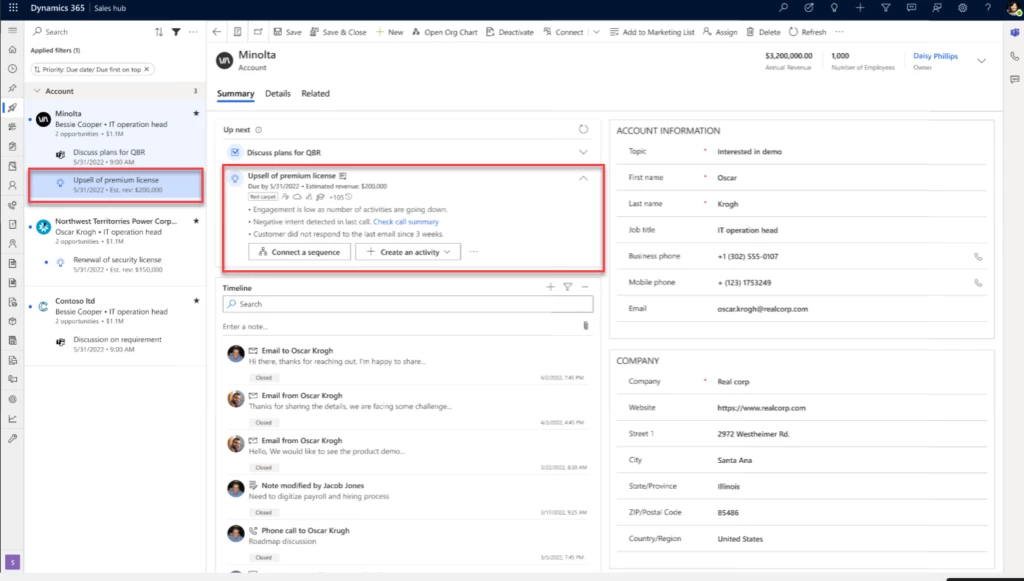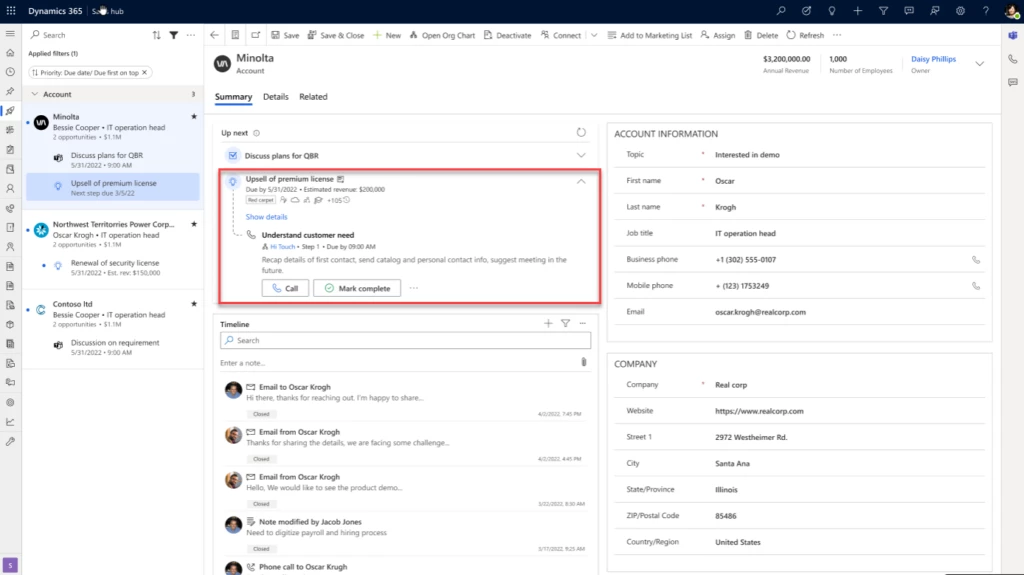This article is contributed. See the original author and article here.
Busy sales account managers prioritize their activities by mining information from their accounts. But manually making sense of all that unstructured data takes time and can lead to inaccurate assumptions. They can end up focusing on the wrong activities, which results in a lower impact on business outcomes. The most productive and successful account managers are the ones who focus on the right customers with the right priority. Dynamics 365 Sales account-based seller insights can help.
Account-based seller insights help drive priorities
Account-based seller insights help you set priorities and formulate the best engagement plan for your customers. These are automated, actionable insights that are derived from multiple sources of unstructured data and presented to you in the right context. For instance, you might be shown an upsell insight for an account based on past won opportunities for similar accounts, along with guidance on the next best action to take. Seller insights help you proactively manage the customer journey, from the first engagement to the final sale.
Behind the scenes with seller insights
Account-based seller insights can be generated in three ways:
- Bring your own model. Use your own AI model, trained on your data, to generate insights, and work with them in the Dynamics 365 sales accelerator.
- Use out-of-the-box models. The account-based seller insights solution comes with its own models, which mine the data in Dynamics 365 Sales to generate insights.
- Build a back-end rule framework. You can build your own rule framework that uses Power Automate flows to generate insights when certain conditions are met.

How seller insights boost productivity
How can seller insights help you be a more effective sales account manager? Let’s look.
Insight list and actions
First, you get curated insights for all your accounts:
- You only see insights that are relevant to you, not your team members.
- The insights have expiration dates so that you know the information is fresh and relevant.
- You can see the reasons an insight appears in the list.
And after you acknowledge an insight, you’re guided through the next best steps to act on it, optimizing the sales workflow for better results. You can also collaborate with team members while you’re working on your insights.

Insight assignment and distribution
Second, although your insights are curated, that doesn’t mean they’re siloed. Insights are assigned to the account owner. If the owner of an entity is a team, an insight can be automatically assigned to the appropriate salesperson on the team, based on role, through the flexible rule framework. Ownership can be transferred from one seller to another, and multiple sellers can work on a single insight.
Insight action history
Finally, you can find all the insights that have been generated for an account on the account’s Insights tab. The list includes status, type, due date, and other helpful information. Filter and sort it to focus on what’s most important. You can easily identify all seller activities for the insights on the timeline view of the account.
By helping you identify your most important and profitable accounts, understand their needs and preferences, tailor your messages and offers, and nurture long-term relationships with them, account-based seller insights can lead to higher revenues, shorter sales cycles, and better customer satisfaction.
Next steps
To get started with seller insights:
- If you’re a sales account manager or seller, read the user documentation.
- If you’re a Dynamics 365 Sales admin, read the administrator documentation.
Not a Dynamics 365 Sales customer yet? Take a guided tour and sign up for a free trial.
The post Account-based seller insights improve sales account manager effectiveness appeared first on Microsoft Dynamics 365 Blog.
Brought to you by Dr. Ware, Microsoft Office 365 Silver Partner, Charleston SC.


Recent Comments